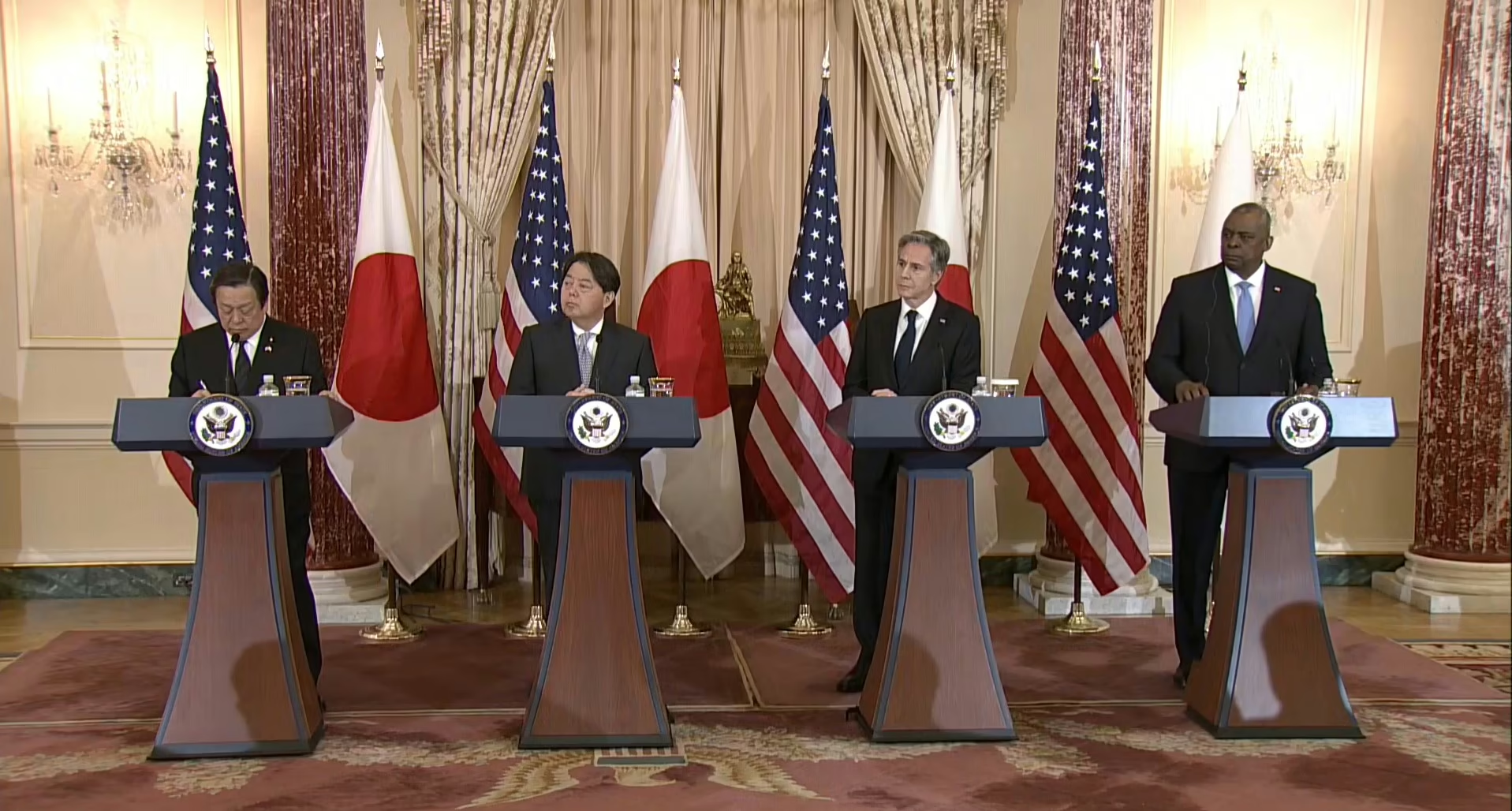U.S., Japan Outline New Military Accords, Hike Industrial Cooperation

From left: Japanese Defense Minster Hamada Yasukazu, Japanese Foreign Minister Hayashi Yoshimasa, U.S. Secretary of State Antony Blinken and U.S. Defense Secretary Lloyd Austin at a Jan. 11 press conference in Washington.
U.S. and Japanese officials on Jan. 11 announced a series of new agreements, a new military unit and an increase in joint military exercises as both nations grow increasingly concerned about Chinese expansion in the region.
U.S. Defense Secretary Lloyd Austin, during a joint appearance with Secretary of State Antony Blinken, Japanese Foreign Minister Hayashi Yoshimasa and Japanese Defense Minister Hamada Yasukazu, says the Pentagon is transitioning the existing artillery-focused 12th Marine Regiment to the 12th Marine Littoral Regiment in Okinawa by 2025. The new unit will have long-range anti-ship missiles and advanced intelligence, surveillance and reconnaissance systems, which will be more “relevant to the current and future threat environment.”
The unit is more agile and capable than the artillery unit and consists of a battalion-sized combat element and a long-range fires element that provides a “very, very important” anti-ship capability on Okinawa, Austin says.
Hamada says Japan is also pursuing new counter-strike weapons and other “persistent warfare capabilities.” The country is tripling its weapons research and development budget, targeting standoff missiles and missile defenses. This includes Tomahawk cruise missiles, development of a hypersonic glide vehicle and production of an improved Type-12 standoff missile.
The meeting comes after Japan released a new National Security Strategy, National Defense Strategy and a Defense Buildup Program committing Japan to meeting a goal of spending 2% of its gross domestic product on defense.
“These new documents really reshape the alliance’s ability to promote peace and protect the rules-based order in the region but also around the world,” Blinken says. “I think what you’re seeing in real time is an alliance that is modernized, and the United States and Japan are working in lockstep to be prepared for the emerging challenges in the Indo-Pacific and beyond.”
The joint appearance also comes before Japanese Prime Minister Fumio Kishida meets with President Joe Biden in Washington. Austin says the two nations will announce new arrangements to increase opportunities for U.S. and Japanese defense enterprises to work more closely, specifically focusing on working together on advanced technologies and “increased linkages between our respective industrial bases.” These will be rolled out in the coming days, he says.
Blinken also says the U.S. and Japan have finalized a new agreement on security in space, expanding the defense treaty to include attacks to or from space. The threat of such attacks presents a “clear challenge,” and depending on the nature of the attack it could spark invocation of Article V of the Japan-U.S. Security Treaty requiring action in response.
